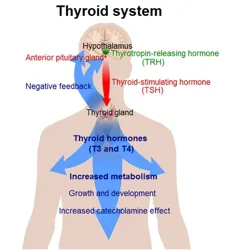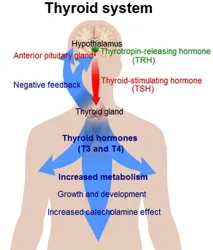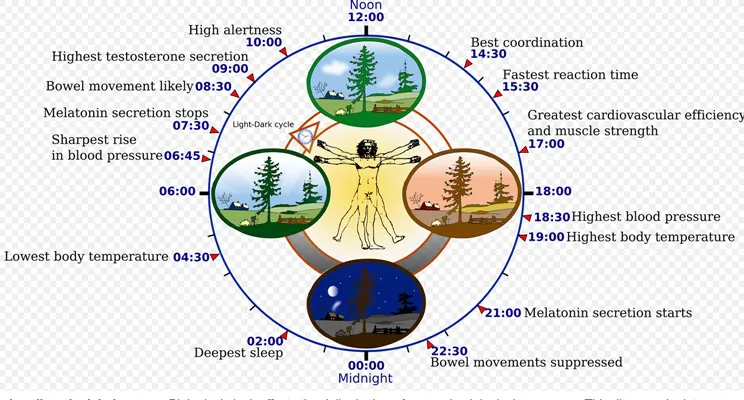
Is Soy Consumption Behind Your Hair Loss Or Thyroid Problems?
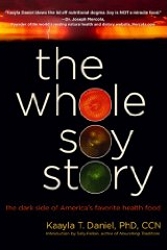 Over the past 12 years since I began my all-encompassing study of hair I have discovered the absolute essential link to hair growth and hair loss to nutrition and vitamin supplements.
Over the past 12 years since I began my all-encompassing study of hair I have discovered the absolute essential link to hair growth and hair loss to nutrition and vitamin supplements.
Of course there are very good foods and supplements to consume which will help grow lush long strands.
(Image of the book - the whole soy story from Amazon.com - All Rights Reserved).
On the flip side there are also foods which may accelerate hair loss and trigger hair loss.
Although a lot of research over the years with regard to hair have been found in hair related information sources, I have also discovered an amazing wealth of information through the natural health care arena.
One such resource is Dr. Mercola whose articles I read religiously to get a brand new point of professional health view and to always expand my thinking patterns.
Since 2008 I have been keenly aware of the growing body of evidence which links a high consumption of soy and soy related products to a list of health problems including thyroid problems linked to hair loss. Although the America public has been led to believe in the great benefits of soy consumption, as Dr. Mercola points out, the benefits may actually not exist.
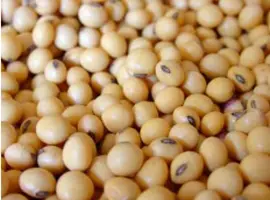 (Image of soybeans - Image from Baltar - All Rights Reserved).
(Image of soybeans - Image from Baltar - All Rights Reserved).
Dr. Mercola in one of his newsletters recommended Dr. Kaayla Daniel's book, The Whole Soy Story and quoted her regarding soy consumption.
Dr. Daniel says "today's high-tech processing methods not only fail to remove the anti-nutrients and toxins that are naturally present in soybeans but leave toxic and carcinogenic residues created by the high temperatures, high pressure, alkali and acid baths and petroleum solvents."
She also points out the findings of numerous studies reviewed by her and other colleagues - that soy does not reliably lower cholesterol, and in fact raises homocysteine levels in many people, which has been found to increase your risk of stroke, birth defects, and yes: heart disease.
Common Health And Beauty Related Problems Attributed To Soy Diets
Other common health problems linked to a high-soy diet according to Dr. Daniel include:
 •Thyroid problems, including weight gain, lethargy, malaise, fatigue, hair loss, and loss of libido
•Thyroid problems, including weight gain, lethargy, malaise, fatigue, hair loss, and loss of libido
•Cancer
•Reproductive disorders
•Weakened immune system
(Image of soy noodles above - Alfredo9 - All Rights Reserved).
Most soy, perhaps about 80 percent or more, is also genetically modified, which adds its own batch of health concerns.
As always I believe everyone should make their own decisions about available information and research. Does soy consumption contribute to hair loss or other thyroid problems. Of course studies have shown that a under or overactive thyroid will contribute to a wide range of hair growth challenges including hair thinning.
 Regardless of what I believe, do your own research and consider every possible connection since ultimately we are all 100% responsible for our own health, welfare and hair related issues.
Regardless of what I believe, do your own research and consider every possible connection since ultimately we are all 100% responsible for our own health, welfare and hair related issues.
(Image of Soybean Harvest - Papaleguas - All Rights Reserved)
While both medical and alternative physicians should always be consulted for their input ultimately you should consider all possibilities when trying to determine the best plan of nutrition for you, your family and your overall wellness.
Hair Thinning & Hair Loss & Other Hair Challenges
Of course hair thinning, hair loss or hair which is brittle and halted in a healthy growth pattern may indeed be somehow linked to the food you consume on an ongoing basis. Studies have proven the importance of vitamins, minerals and other supplements for skin, nail and hair health. Why not consider the actual foods you consume as well.
As always, my mission is to offer lots of alternative theories for others to evaluate and consider and form their own ultimate opinions.
More Information
Please follow me on Twitter at http://Twitter.com/HairBoutique. I look forward to meeting new Tweeple from all walks of Twitter and learning from their Tweets.
Social Media Network Information
Please follow us on Twitter at: https://Twitter.com/HairBoutique. I look forward to meeting new people from all walks of Twitter and learning from their Tweets.


